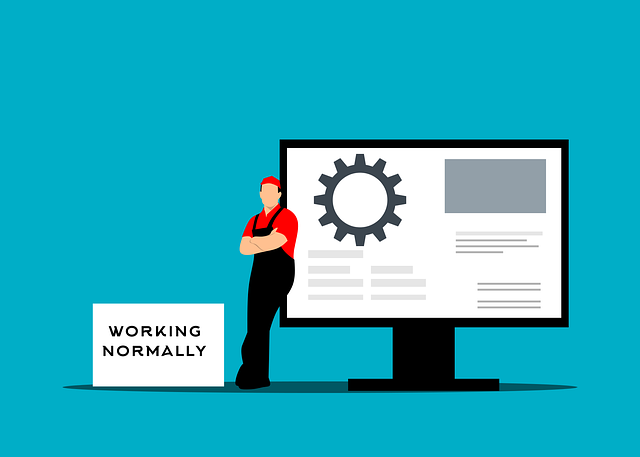HIPAA call center support prioritizes patient data privacy through stringent standards: secure communication, access controls, staff training, encryption, and storage methods. These measures protect Protected Health Information (PHI), mitigate risks of breaches, and foster trust in healthcare partnerships. Advanced software and regular monitoring ensure compliance, maintaining the integrity of medical records and seamless clinic communication.
In the healthcare industry, ensuring patient data privacy is paramount. HIPAA (Health Insurance Portability and Accountability Act) sets stringent standards for the protection of sensitive information. This article explores how dedicated HIPAA call center services are revolutionizing patient communication. We delve into the critical aspects of compliance, including secure protocols, staff training, and advanced technology, all designed to safeguard patient records. By understanding these requirements, healthcare providers can leverage expert call center support to maintain trust and ensure confidential interactions.
- Understanding HIPAA Requirements for Call Centers
- Implementing Secure Communication Protocols
- Data Protection Measures in Call Center Environments
- Training Staff on Patient Confidentiality
- Monitoring and Auditing for Compliance
- The Role of Technology in HIPAA Adherence
Understanding HIPAA Requirements for Call Centers

In the healthcare industry, protecting sensitive patient information is paramount, and this responsibility extends to call centers handling patient communications. HIPAA (Health Insurance Portability and Accountability Act) sets stringent standards for ensuring patient confidentiality services and medical data privacy. For call center services, this means implementing robust procedures and technologies to safeguard patient data during every interaction. From secure communication channels to strict access controls, adhering to HIPAA guidelines is essential for any organization involved in healthcare support.
Call centers catering to the healthcare sector must establish a comprehensive HIPAA support system that includes staff training on privacy policies, encryption of data transmission, and secure storage methods. These measures ensure that patient confidentiality services remain intact, even as conversations flow freely between patients, providers, and call center agents. By embracing these stringent standards, call centers can offer reliable medical data privacy solutions while fostering trust in their healthcare partnerships.
Implementing Secure Communication Protocols

In the healthcare industry, where patient confidentiality is paramount, implementing robust communication protocols is non-negotiable. A HIPAA call center support system plays a pivotal role in ensuring secure exchanges of protected health information (PHI) between healthcare providers and patients. These specialized centers employ advanced technologies to safeguard data, adhering strictly to HIPAA standards. This includes the use of encrypted channels for transmission, secure data storage, and rigorous staff training on privacy protocols.
Through these measures, healthcare organizations can rest assured that patient information remains confidential and protected. The implementation of such a system not only facilitates seamless communication but also mitigates risks associated with data breaches, fostering a reliable and trustworthy environment for all parties involved in patient care.
Data Protection Measures in Call Center Environments

In call center environments, ensuring robust data protection measures is paramount, especially when handling sensitive healthcare information governed by HIPAA regulations. These centers serve as vital hubs for secure communication between healthcare providers and patients, necessitating stringent security protocols to safeguard Protected Health Information (PHI). The implementation of advanced encryption technologies, both during data transmission and storage, is a cornerstone of these safety protocols. This ensures that even if there’s an unfortunate breach, the stolen information remains unintelligible without the decryption key.
Beyond encryption, strict access controls and user authentication mechanisms are employed to restrict access to PHI only to authorized personnel. Regular security training for staff members underscores the importance of patient confidentiality services and reinforces best practices for maintaining medical data privacy. This is further enhanced by implementing robust monitoring systems that detect and alert administrators about any suspicious activities or unauthorized attempts to access sensitive data, ensuring continuous protection of these vital records.
Training Staff on Patient Confidentiality

In a HIPAA compliant call center, training staff on patient confidentiality is paramount. Agents must be educated on the intricate details of healthcare data privacy laws to ensure they handle every interaction with utmost care. This includes recognizing and adhering to strict protocols for sharing or discussing sensitive information, such as medical records or treatment plans. Regular refresher courses are crucial to reinforce these practices, given the dynamic nature of privacy regulations and evolving patient expectations.
The training programs should cover not just technical aspects of data protection but also ethical considerations. Staff must be attuned to potential red flags—unusual requests for information, lack of proper authorization, or any behavior that could compromise patient confidentiality. By fostering a culture of vigilance and responsibility, these call centers guarantee secure clinic communication, ensuring medical data privacy at every step.
Monitoring and Auditing for Compliance

In the realm of healthcare, ensuring patient information remains secure is paramount. HIPAA call center support plays a pivotal role in achieving this by implementing robust monitoring and auditing systems. These advanced tools track every interaction, providing an immutable record for compliance checks. With real-time surveillance, any deviations from established protocols can be swiftly identified and addressed.
Moreover, regular audits are conducted to verify adherence to the stringent HIPAA standards. This meticulous process involves comprehensive reviews of call center operations, including data storage, handling, and transmission protocols. By integrating these practices, healthcare providers can establish a reliable HIPAA support system that safeguards medical data privacy while facilitating secure clinic communication.
The Role of Technology in HIPAA Adherence

The role of technology is pivotal in ensuring HIPAA compliance within call centers, where protected health information (PHI) flows freely. Advanced software solutions and digital tools are implemented to safeguard data, maintain patient privacy, and provide a robust HIPAA support system. These technologies encrypt sensitive data, secure transmission channels, and implement strict access controls, making it difficult for unauthorized individuals to access or manipulate PHI.
Moreover, integrated communication platforms enable secure clinic communication, fostering seamless collaboration between healthcare providers and patients while adhering to stringent HIPAA standards. By leveraging technology, call centers can offer efficient, yet secure, patient support, ensuring the integrity of PHI and maintaining the highest level of data protection.
